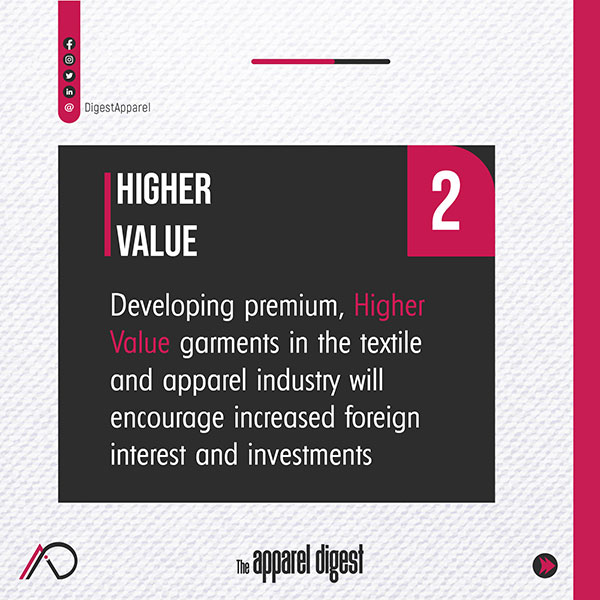Scorecards were introduced as a component of the Higg Sustainability Profiles and the Higg Index Materials in May of the previous year. Higg is a software platform for sustainability that assists businesses in measuring their effect. In layman’s terms, it provided a scorecard that offered a standardized way to compare performance across various products and brands. This gave consumers an easy-to-understand method of identifying products that had a lower impact on the environment and allowed them to make more informed purchasing decisions.
H&M is a member of the Sustainable Apparel Coalition (SAP), which is the organization that developed the Higg measure. H&M has been using the Index and scorecards on its e-commerce product listings ever since they were first introduced, assigning a score to each item based on the environmental impact of the materials that were used to make the item.
According to the findings of a research that was done by Quartz, a worldwide news resource for purpose-driven professionals, the environmental scores that H&M has been given are “misleading” and “outright fraudulent.” On their website, H&M provided an explanation of the measures in the form of scores ranging from “baseline” to “3.” Items created with standard materials are given ratings of baseline, whereas products made with materials that have lesser environmental implications are given scores of 1, 2, and 3. Customers will also be able to see specific statistics on implications linked to the usage of water, global warming, the use of fossil fuels, and water pollution on each product.
According to Quartz, more than fifty percent of the H&M products that received high rankings and made claims that the garments had less of an impact on the environment were not more sustainable than identical garments created by competitors. “H&M presented data that painted a completely inaccurate image of the effect that a garment has on the surrounding environment. These mistakes occurred as a result of the online retailer’s website ignoring warning flags that were included in the Higg Index scores. For example, a dress that had a water-use score of -20 percent—meaning that it used 20 percent more water than the average—was presented on H&M’s website as consuming 20 percent less water, according to Quartz.
Following the publication of these data by Quartz, H&M took down all of the scorecards from its website last week. The prompt response from H&M may be a sign that the sheer amount of things that fast fashion firms create simply is not consistent with minimizing their environmental impact, regardless of how dedicated fast fashion companies are to implementing sustainable techniques. Greenwashing is another term that can be used to describe this practice. H&M said that the scorecards were intended to demonstrate transparency; however, the Higg Index is currently embroiled in its own controversy. This comes after H&M was reprimanded by Norway’s consumer protection regulator in June for misleading customers and using the Index as a marketing tool.
Anna Palmquist, who works as a Sustainability Specialist for H&M Group Expansion, is in charge of directing the store’s efforts to improve its environmental footprint. H&M revealed the results on its website, where it revealed that it had received a score of 70.8 percent on the Higg’s Index at the brand level. With the shocking product scores that were displayed on H&M’s website, the product team at H&M either made a mistake in their calculations or intentionally tried to mislead customers. Quartz reported that more than one hundred different women’s clothes scorecards contained mistakes. The Index does not evaluate whether or not garments are biodegradable or whether or not they release any microplastics. According to Philippa Grogan of Eco-Age, who works for Eco-Age, the Higg Index only looks at a specific part in its evaluation of the sustainability of garments. For a comprehensive evaluation of the lifecycle and impact of a garment, it would need to be measured from the design stage all the way through its disposal, said Grogan to the Sourcing Journal.
On Monday of this week, the Sustainable Apparel Coalition announced that they would immediately review their data and methodology. The most recent evaluation was in the year 2016, which is now eight years ago. Because the SAC prioritizes synthetic materials generated from fossil fuels over natural fibers such as wool, cotton, and even leather, the organization is coming under greater criticism as a result of its position. For instance, the Sustainable Apparel Coalition (SAC) is a proponent of recycled polyester, which is a low-cost synthetic fabric that a large number of its members, such as H&M, utilize in their collections. Even though the H&M website does not offer a materials filter for polyester, a search turned up over 10,000 products that were either produced entirely of polyester or contained polyester in some capacity.
For the time being, the most effective strategy for customers to embrace sustainable fashion is to shop less frequently but invest in items with a longer shelf life.
Reference:
Adegeest, Don-Alvin. “H&M ‘greenwashed’ Its Sustainability Scores, Says Investigation.” FashionUnited, 4 July 2022, https://fashionunited.uk/news/fashion/h-m-greenwashed-its-sustainability-scores-says-investigation/2022070463921

